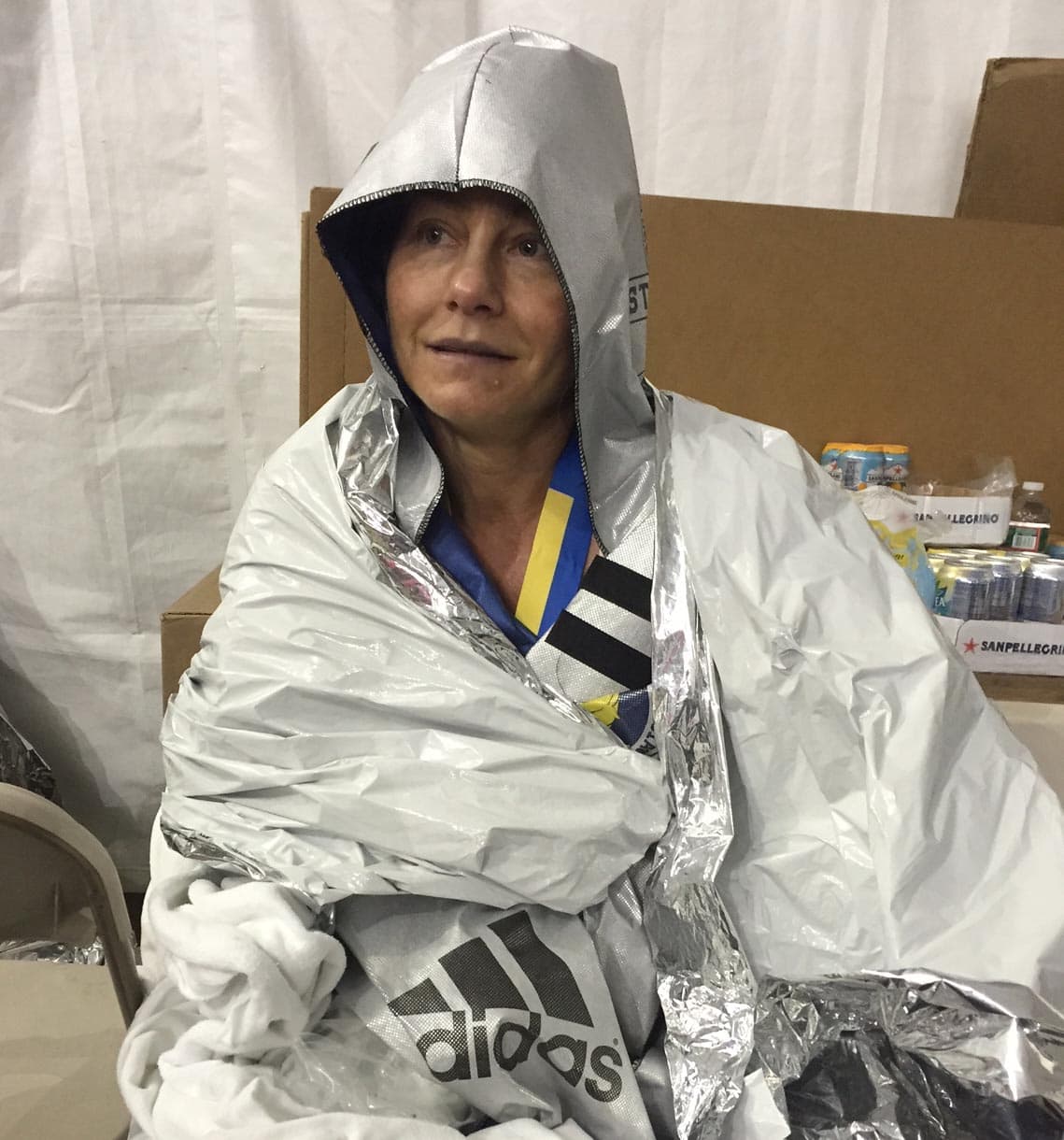Advertisement
Blankets And Broth: Hypothermia The Main Medical Issue At 2015 Boston Marathon
ResumeLauri Perry, of Austin, Texas, is used to getting really hot when she runs. She thought she was being cautious ahead of Monday's Boston Marathon, when she added a layer over her running top.
"I started out with something on and I threw it away at mile six because it was warmer. Then the rain started at about mile 10 or so, and then the wind got worse," Perry said, her voice trailing off.
By the time Perry crossed the finish line on Boylston Street she was soaking wet, numb, blue and shaking.
"Uncontrollable shaking," Perry repeated with emphasis. "I couldn’t even hold my drink because it was splashing out."

Perry has run the Boston Marathon five times and notes with some pride that she has never needed medical assistance after the race. But Monday, when a member of the medical team asked if she wanted to step inside the big white tent, she gave in.
"I would normally say no," Perry said, looking disappointed. "I’m a pretty strong person but I knew that I would not be able to walk all the way back to my hotel in the condition I was in."
Perry and hundreds of runners on Monday fell victim to hypothermia, a condition where despite a runner's hyper-exertion, their body temperature drops dangerously low. Inside a medical tent at the finish line, Perry peeled off her wet clothes and shoes and sat wrapped in multiple Mylar and cotton blankets, drinking warm fluids. But some runners needed more active warming.
"We use what’s called a 'Bair Hugger,' where you have this air flow system that goes around and warms them," explained Dr. Pierre d’Hemecourt, co-medical director of the Boston Marathon.
Across the vast medical tent Monday afternoon there where signs of the standard post-race issues — some of the runners needed fluids or help with cramping. But for most the issue was standard hypothermia, with the body temperature of some runners falling into the low 90s.
"It’s interesting, we’re seeing more people than normal but far less acute," d’Hemecourt said.
"It’s basically just babysitting and getting them warmed up."
One of the medical tents filled up and had to close at one point Monday afternoon. The overflow of shivering runners were loaded onto buses to warm up. As of 5:30 p.m., 1,310 runners had been treated in the medical tents and 36 transported to area hospitals.
For d’Hemecourt, who’s been co-medical director since 2007, Monday was a first.
"I’ve never quite seen as many cold people come in at one time," he said. "It just goes to show, every year you show up here you see something different."
But on balance, the medical team says cold is easier on the body than heat.
Correction: An earlier version of this report misspelled "Bair Hugger." We regret the error.
